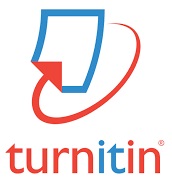The Effect of PhET Simulation-Based Learning on The Ability to Understand Elementary Science Concepts in Work and Energy Material
Abstract
Keywords
Full Text:
PDFReferences
Bahtiar, B., & Ibrahim, I. (2022, January). The science literacy profile based on students’ creative thinking skill in the time of COVID-19 pandemic using blended learning. In International Conference on Madrasah Reform 2021 (ICMR 2021) (pp. 102-110). Atlantis Press.
Bahtiar, B., Ibrahim, I., & Maimun, M. (2022). Analysis of Students' Scientific Literacy Skill in terms of Gender Using Science Teaching Materials Discovery Model Assisted by PhET Simulation. Jurnal Pendidikan IPA Indonesia, 11(3), 371-386.
Batuyong, C. T., & Antonio, V. V. (2018). Exploring the effect of PhET® interactive simulation-based activities on students’ performance and learning experiences in electromagnetism. Asia Pacific Journal of Multidisciplinary Research, 6(2), 121-131.
Farashahi, M., & Tajeddin, M. (2018). Effectiveness of teaching methods in business education: A comparison study on the learning outcomes of lectures, case studies and simulations. The international journal of Management Education, 16(1), 131-142.
Fauth, B., Decristan, J., Decker, A. T., Büttner, G., Hardy, I., Klieme, E., & Kunter, M. (2019). The effects of teacher competence on student outcomes in elementary science education: The mediating role of teaching quality. Teaching and teacher education, 86, 102882.
Gani, A., Syukri, M., Khairunnisak, K., Nazar, M., & Sari, R. P. (2020, June). Improving concept understanding and motivation of learners through Phet simulation word. In Journal of Physics: Conference Series (Vol. 1567, No. 4, p. 042013). IOP Publishing.
Gunawan, G., Kosim, K., Ibrahim, I., Susilawati, S., & Syukur, A. (2021, February). The effectiveness of physics learning tools based on discovery model with cognitive conflict approach toward student’s conceptual mastery. In Journal of Physics: Conference Series (Vol. 1747, No. 1, p. 012035). IOP Publishing.
Haryadi, R., & Pujiastuti, H. (2020, April). PhET simulation software-based learning to improve science process skills. In Journal of Physics: Conference Series (Vol. 1521, No. 2, p. 022017). IOP Publishing.
Hillmayr, D., Ziernwald, L., Reinhold, F., Hofer, S. I., & Reiss, K. M. (2020). The potential of digital tools to enhance mathematics and science learning in secondary schools: A context-specific meta-analysis. Computers & Education, 153, 103897.
Hussein, M. H., Ow, S. H., Cheong, L. S., Thong, M. K., & Ebrahim, N. A. (2019). Effects of digital game-based learning on elementary science learning: A systematic review. IEEE Access, 7, 62465-62478.
Ibrahim, I., Kosim, K., & Gunawan, G. (2017). Pengaruh model pembelajaran conceptual understanding procedures (CUPs) berbantuan LKPD terhadap kemampuan pemecahan masalah fisika. Jurnal Pendidikan Fisika dan Teknologi, 3(1), 14-23.
Inayah, N., & Masruroh, M. (2021). PhET simulation effectiveness as laboratory practices learning media to improve students’ concept understanding. Prisma Sains: Jurnal Pengkajian Ilmu Dan Pembelajaran Matematika Dan IPA IKIP Mataram, 9(2), 152-162.
Mallari, R. L., & Lumanog, G. D. (2020). The effectiveness of integrating PhET interactive simulation-based activities in improving the student’s academic performance in science. International Journal for Research in Applied Science and Engineering Technology, 8(9), 1150-1153.
Niebert, K., & Gropengiesser, H. (2018). Understanding Starts in the Mesocosm: Conceptual metaphor as a framework for external representations in science teaching. In Conceptual metaphor and embodied cognition in science learning (pp. 171-201). Routledge.
Oktaviana, D., Mahardika, I. K., & Budiarso, A. S. (2020). The effectiveness of guided inquiry learning assisted by PhET simulation to improve the capability of representation image of science student in junior high school. ScienceEdu, 3(1), 43-47.
Prima, E., Putri, A. R., & Rustaman, N. (2018). Learning Solar System Using PhET Simulation to Improve Students' Understanding and Motivation. Journal of Science Learning, 1(2), 60-70.
Putranta, H., & Kuswanto, H. (2018). Improving students’ critical thinking ability using problem based learning (PBL) learning model based on PhET simulation. SAR Journal, 1(3), 77-87.
Rahmawati, Y., Hartanto, O., Falani, I., & Iriyadi, D. (2022). Students' Conceptual Understanding in Chemistry Learning Using PhET Interactive Simulations. Journal of Technology and Science Education, 12(2), 303-326.
Sagala, R., Umam, R., Thahir, A., Saregar, A., & Wardani, I. (2019). The effectiveness of stem-based on gender differences: The impact of physics concept understanding. European Journal of Educational Research, 8(3), 753-761.
Salame, I. I., & Makki, J. (2021). Examining the use of PhEt simulations on students’ attitudes and learning in general chemistry II. Interdisciplinary Journal of Environmental and Science Education, 17(4), e2247.
Subiki, S., Hamidy, A. N., Istighfarini, E. T., Suharsono, F. Y. H., & Putri, S. F. D. (2022). Pengaruh Media Pembelajaran Phet Simulation Terhadap Hasil Belajar Siswa SMA Negeri Plus Sukowono Materi Usaha dan Energi Tahun Pelajaran 2021/2022. ORBITA: Jurnal Pendidikan dan Ilmu Fisika, 8(2), 200-204.
Sukma, E., Ramadhan, S., & Indriyani, V. (2020, March). Integration of environmental education in elementary schools. In Journal of Physics: Conference Series (Vol. 1481, No. 1, p. 012136). IOP Publishing.
Susilawati, A., Yusrizal, Y., Halim, A., Syukri, M., Khaldun, I., & Susanna, S. (2022). The effect of using physics education technology (PhET) simulation media to enhance students’ motivation and problem-solving skills in learning physics. Jurnal Penelitian Pendidikan IPA, 8(3), 1166-1170.
Thahir, A., Anwar, C., Saregar, A., Choiriah, L., Susanti, F., & Pricilia, A. (2020, February). The Effectiveness of STEM learning: scientific attitudes and students’ conceptual understanding. In Journal of Physics: Conference Series (Vol. 1467, No. 1, p. 012008). IOP Publishing
DOI: https://doi.org/10.56842/jp-ipa.v5i1.286
Refbacks
- There are currently no refbacks.







